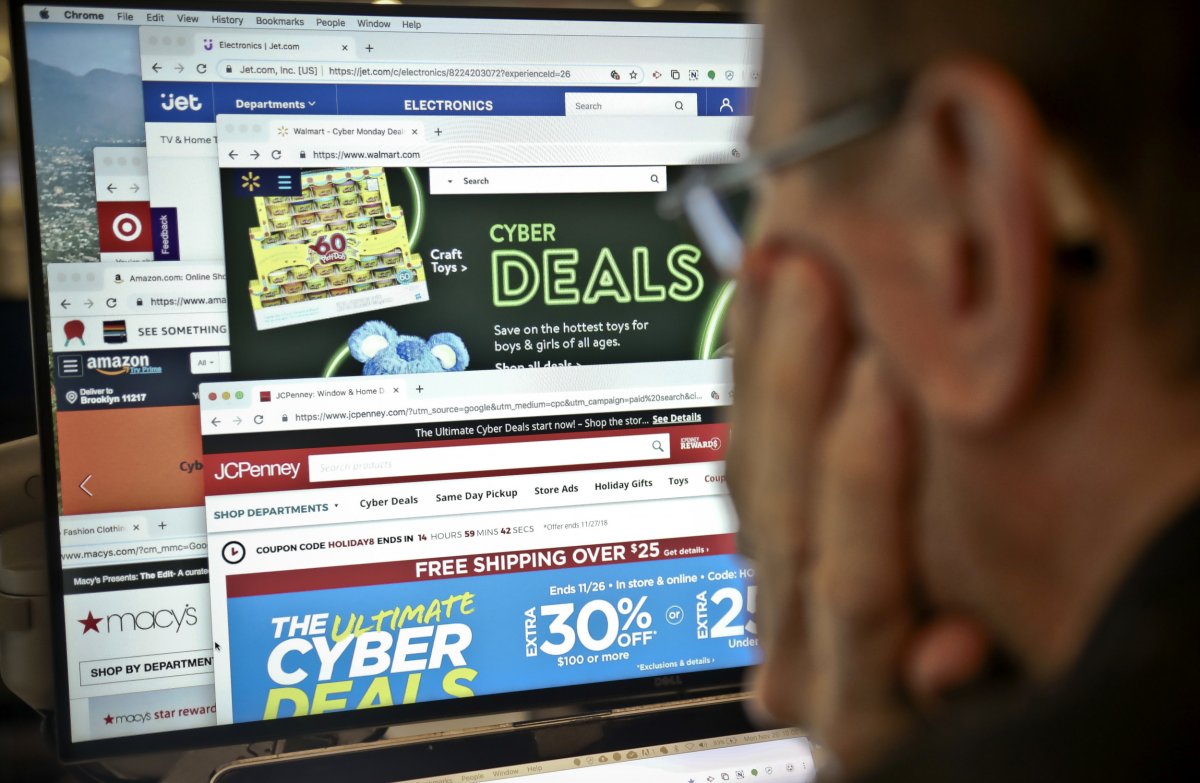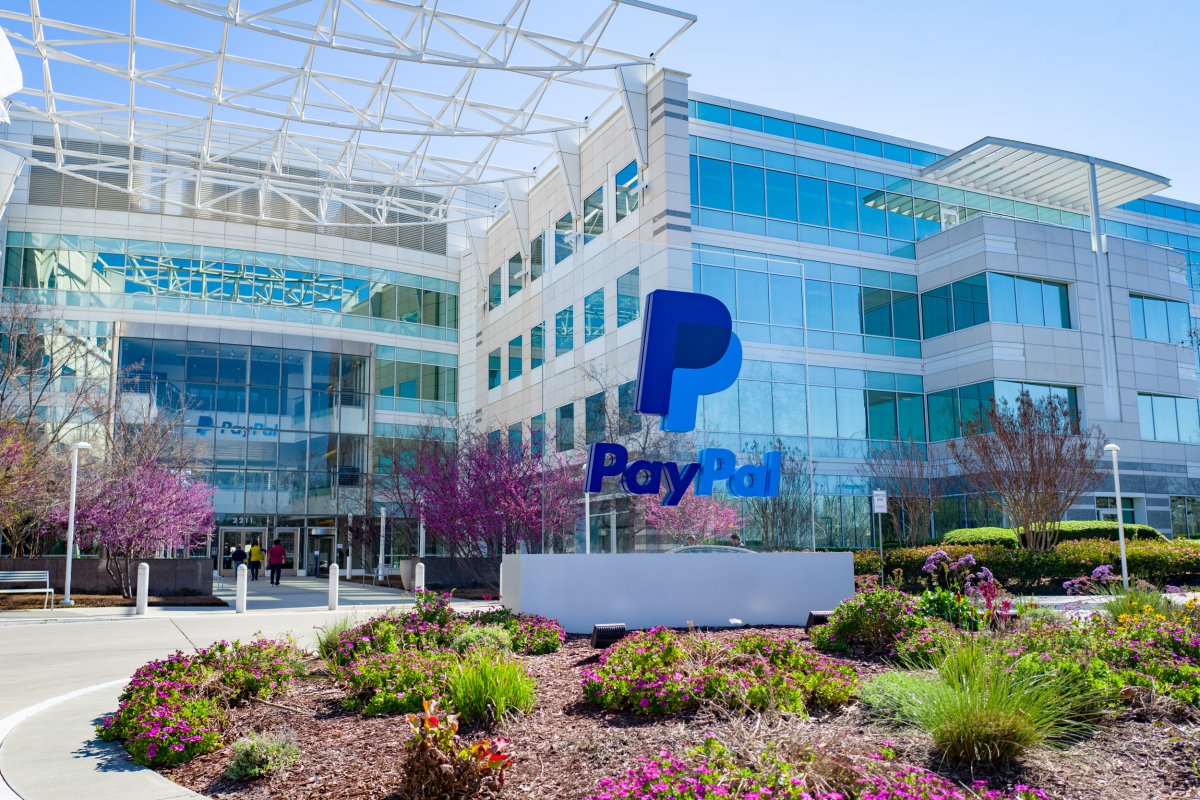Revenue from "buy now, pay later" plans on Cyber Monday grew 21 percent compared to a year ago, according to an analysis by the Adobe Digital Economy Index. Thousands of retailers often offer this checkout option that permits buyers to pay for purchases in installments, and more and more U.S. consumers seem to be taking advantage of the option.
Though buy now, pay later options have been around in some shape or form for decades, the emergence of several third-party installment payment options have changed how—and by whom—the service is offered, the Associated Press reported.
Rather than solely having customers apply for store-specific credit cards in order to make payments in installments, financing options from companies like Affirm, Afterpay and PayPal have become increasingly common at checkouts.
One major credit card company said that about six of every 10 of its customers in the U.S. began a buy now, pay later plan for the first time this year. Meanwhile, Silicon Valley-backed companies that provide these purchase plans are gaining tens of thousands of new users per week, according to AP.
PayPal CEO Dan Schulman told CNBC's Jim Cramer on Tuesday that the volume of people using its installment payment option increased by almost 400 percent on Black Friday compared to last year. They recorded roughly 750,000 transactions on that day alone, he added.
For more reporting from the Associated Press, see below.

Industry advocates say buy now, pay later programs are preferable to credit cards because there are fixed monthly payments and any interest is clearly stated upfront. Consumer advocates, typically skeptical about any new financial product, also have been relatively more positive about buy now, pay later since any plan would have a beginning and end date. Most of their worries concern any fees that might be associated with late payments.
"These products do encourage people to pay purchases off quicker and usually with less interest, but if people are using them to simply buy more than they should and getting over their heads, paying late fees, etc., are they really helping manage people's expenses?" Lauren Saunders, associate director for the National Consumer Law Center, said.
There are typically two different types of buy now, pay later services: the short-term payment plans that break a purchase up into four or six bi-weekly payments, and the longer-term installment loan-like products that Affirm offers.
PayPal co-founder Max Levchin started Affirm in 2012. The $32 billion company went public this year and effectively made Levchin the latest PayPal alumnus to become a billionaire.
With its buy now, pay later widget on many retailers' websites, the company has seen extreme growth in the past few years. Affirm said in November that 8.7 million Americans are using its buy now, pay later services, more than double from a year ago. The company signed up 1.6 million new customers in the U.S. and Canada just in the last 90 days.
Levchin, 46, said he started Affirm partly because when he was younger credit cards ruined his credit and buried him in interest and fees. He said he wanted to create a financially healthier product that would allow people to buy things on credit.
"We knew it was going to be gigantic a long time ago. It's just at the kind of scale now where it's basically impossible to ignore," Levchin said in an interview in San Francisco.
The option to spread more routine purchases over time is going to be even more widespread in the coming months. At a café, Levchin paid for a $22 lunch by splitting the payments into four biweekly payments of $5.50. The company is testing a debit card that will allow customers to decide whether to pay any purchase in total or spread it over time.
The cost of doing pay-over-time can vary with Affirm and other buy now, pay later providers. A six- to eight-week purchase may carry no interest at all like the $22 lunch. In some cases, the merchant has decided to pay the interest for the customer. But other consumers could pay as much as 30 percent annual interest on these large purchases with Affirm.
Afterpay does not charge interest on its purchases but does charge borrowers a late fee if they miss a payment, up to 25 percent of the loan's value. Affirm does not charge late fees on any purchases, but typically is willing to lend larger amounts and charge interest on longer-term loans.
The interest in buy now, pay later does not seem to be slowing.
A September study written by consulting firm Accenture, but commissioned by AfterPay, estimates that roughly 6 percent of all dollars spent online will be on buy now, pay later programs by year end. That figure is forecast to be 13 percent of all spending by 2025. That figure was basically zero a few years ago. Two major retailers—Wal-Mart and Target—have partnered with buy now, pay later companies like Affirm. Wal-Mart got rid of its layaway program in favor of buy now, pay later.
Credit card companies, seeing the potential impact of buy now, pay later on their business model, have tried to adapt. American Express, JPMorgan Chase and Citigroup all now offer similar payment plans for items purchased on their cards. A report by consulting firm McKinsey found that buy now pay, later startups diverted between $8 billion and $10 billion in revenue from traditional banks that would have likely financed these purchases a few years ago.
AmEx said 58 percent of its customers have set up a purchase plan for the first time this year, and more than $5 billion worth of purchases have been put on "Pay It, Plan It" agreements.
The rapid growth of buy now, pay later has also caught the attention of politicians and regulators. The House Financial Services Committee held a hearing on buy now, pay later programs earlier this month, when politicians asked for the Consumer Financial Protection Bureau to put more emphasis on monitoring the growth of this type of financing.
"These products raise important questions about the use of consumer data, the exploitation of spending patterns, the application of lending laws and the potential for unsustainable levels of consumer debt," said Representative Steven Lynch, a Massachusetts Democrat.

Uncommon Knowledge
Newsweek is committed to challenging conventional wisdom and finding connections in the search for common ground.
Newsweek is committed to challenging conventional wisdom and finding connections in the search for common ground.
About the writer
Zoe Strozewski is a Newsweek reporter based in New Jersey. Her focus is reporting on U.S. and global politics. Zoe ... Read more
To read how Newsweek uses AI as a newsroom tool, Click here.








